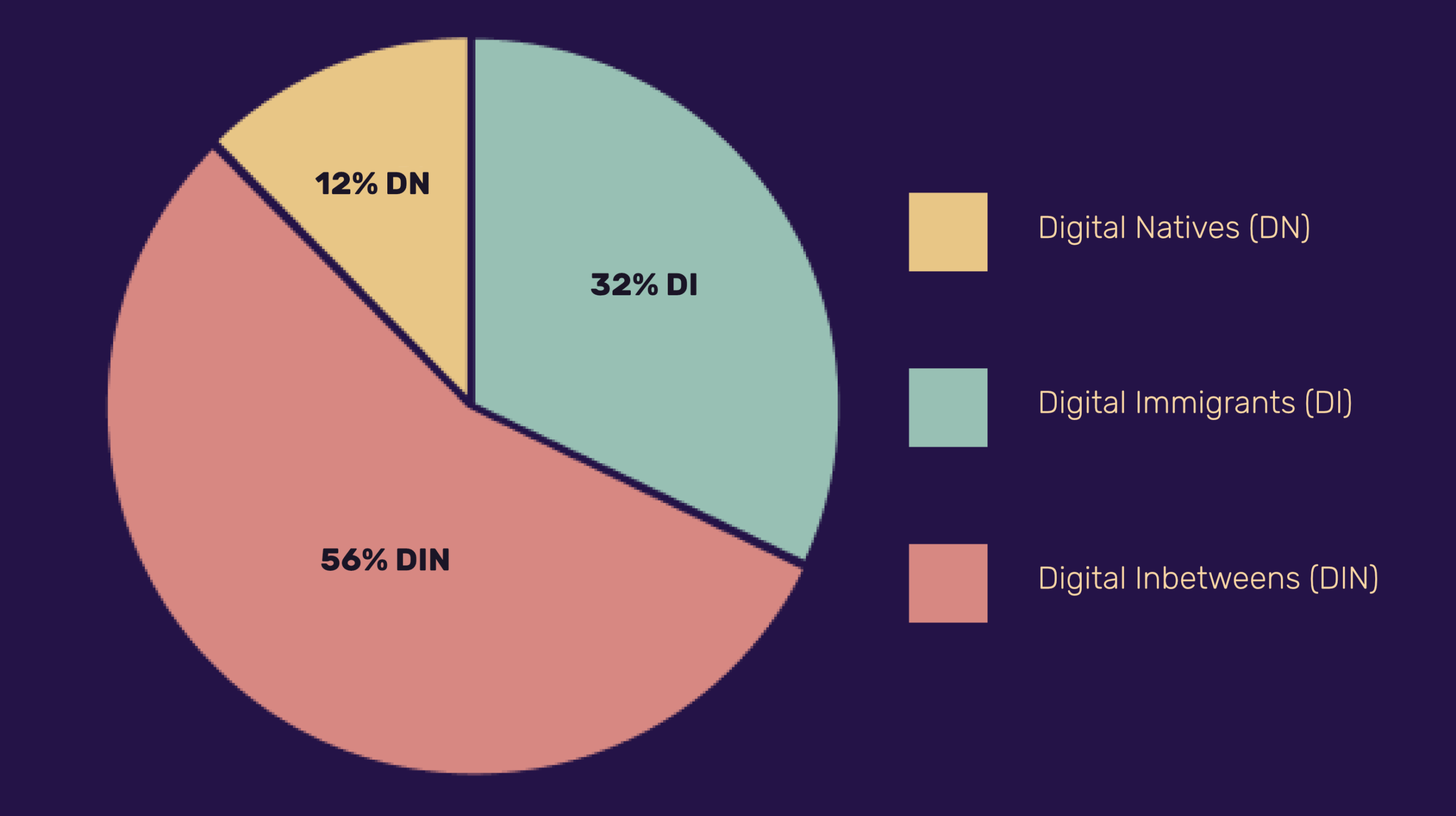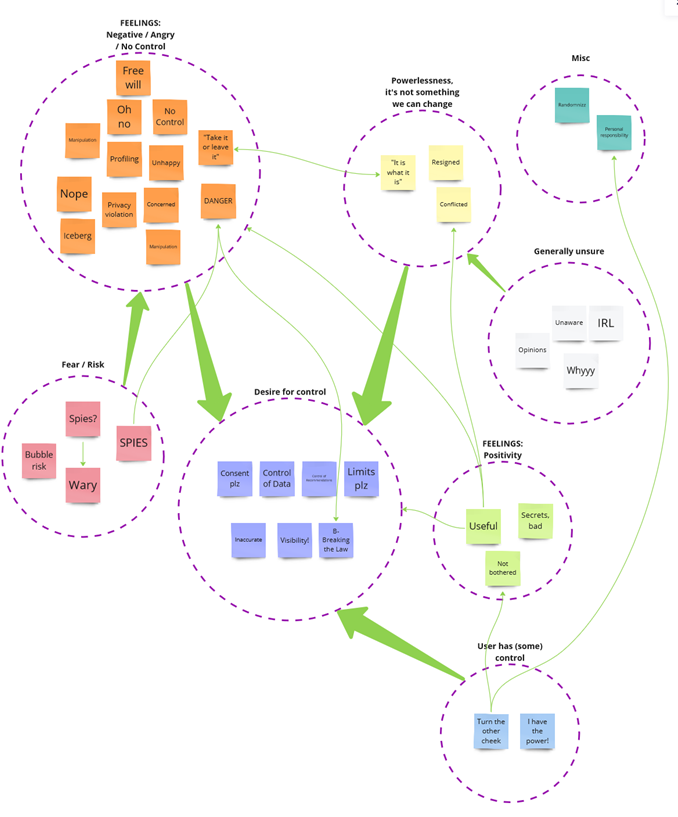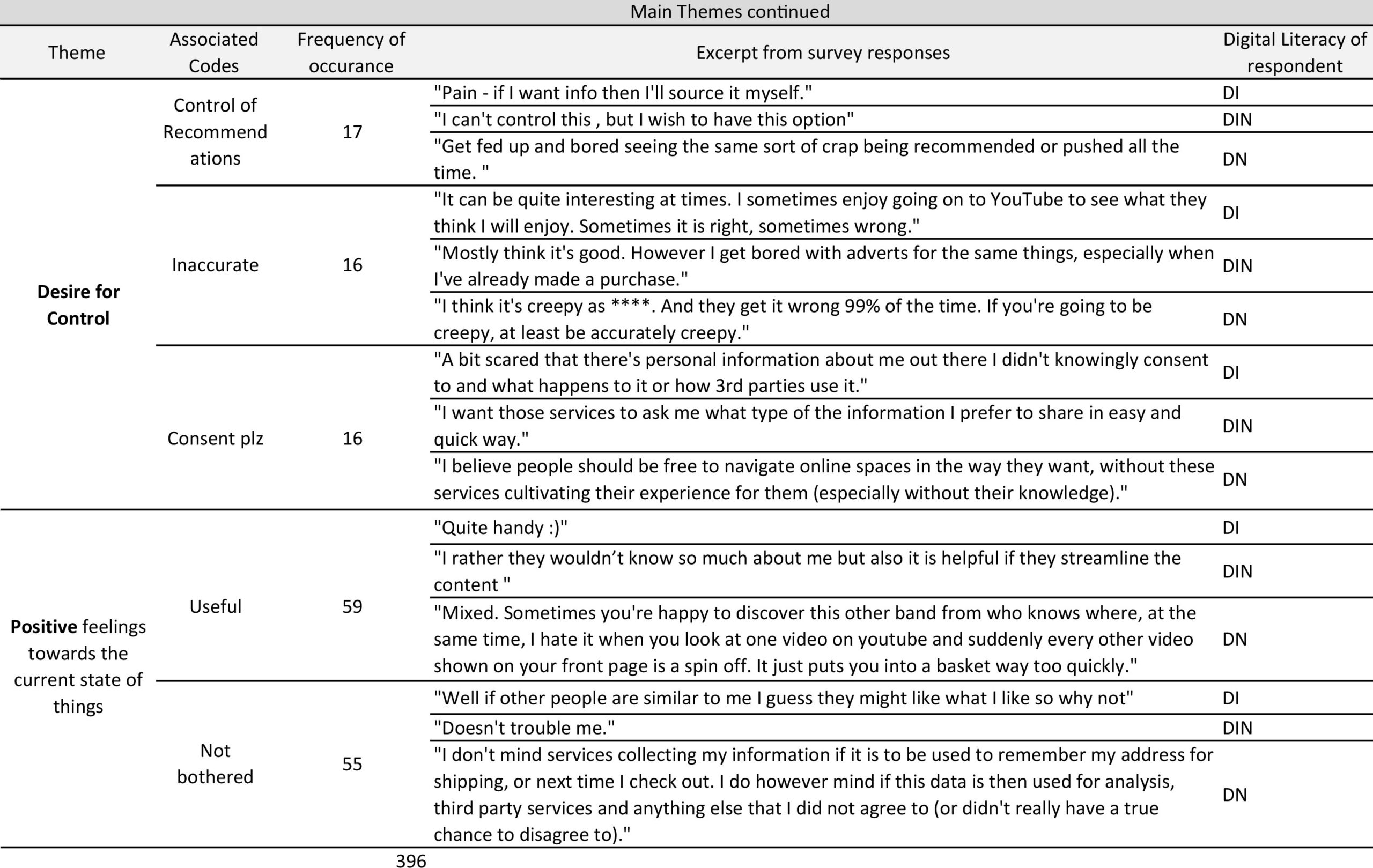
Echoing Yates & Lockley, my findings show that participants rarely fit neatly into one camp. Most occupied a complex space between digital immigrant and native.
Providing informed consent as a vulnerable user:
User perceptions of data collection in recommender systems
My role
This was a self-directed research project. I conducted primary and secondary research to understand the perceptions of vulnerable users in everyday digital services.
User Interviews, Surveys, Literature Review, Data Analysis, Documentation and Writing
Results
Over 12 weeks, I researched and wrote a research paper that addressed the current context of HCI literature and began to disentangle the complexities surrounding consent, privacy and convenience.
Page Navigation
Abstract
Recommender systems are a common AI technology in online platforms such as YouTube, Facebook, and Spotify. They personalise content to make your online experience more valuable. However, this erodes personal autonomy as the user no longer actively controls what they see. Recommendations lead to echo chambers reinforcing a potentially skewed representation of information. Digital immigrants (people with low digital literacy) are vulnerable users who can struggle to recognise online echo chambers. Through a digital survey, users engaging with recommender systems were asked about their perceptions of data collection in personalised online platforms. These perceptions lead to a discussion of how that impacts the provision of informed consent within online spaces.
It was found that users are scared and angry with current data collection practices regardless of their digital literacy. 62% of users had no idea what data was collected and did not know what they were consenting to. No strong correlation was found between users’ digital literacy and their knowledge of the dangers of RSs or echo chambers. An additional ‘in-between category’ of digital literacy was found among participants. Many respondents lamented their lack of knowledge and expressed a desire to control their recommendations and their data.
Future studies should investigate how to give users more autonomy and deepen our understanding of the complexity of digital literacy.
Keywords | Recommender Systems, Autonomy, Informed Consent, Data Collection, Digital Immigrants, Digital Natives
Abbreviations | RSs – Recommender Systems; DIs – Digital Immigrants; DINs – Digital Inbetweens; DNs – Digital Natives; Pn – Participant number; PI – Personal Information
Reflection
Consent and the ethics surrounding data collection are tricky, nebulous topics and I am very glad I persisted with this direction of research. I felt this paper was more of an exploratory project that has the potential to inform future studies that I would love to conduct. Particularly because recommender systems are so useful in daily life!
I would have loved to expand on the findings surrounding DI/DIN/DN to build upon the studies by Yates and Lockley but perhaps that is for a future research project.





